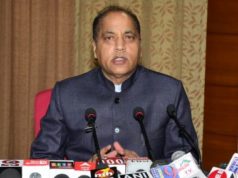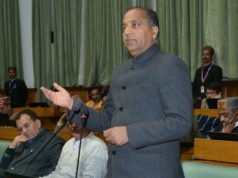In a significant blow to the Himachal Pradesh government, already grappling with a severe financial crisis, the central government has dealt a staggering blow by reducing the state’s loan limit by a whopping ₹5500 crores. Adding to the distress, the matching grant received for the annual deposit of ₹1780 crores in National Pension System (NPS) accounts has been abruptly discontinued.
Faced with this adverse development, Chief Minister Sukhvinder Singh Sukhu and his team have headed to Delhi to engage in crucial discussions with the Union Finance Minister. In an informal conversation with reporters before his departure, Chief Minister Sukhvinder Singh expressed unwavering determination to present a compelling case to the Union Finance Minister. He underscored that the state government’s borrowing limit, which stood at ₹14,500 crores during the BJP government’s tenure, has now been diminished by ₹5,500 crores.
This unexpected reduction in the loan limit has raised grave concerns within the state government, which was already struggling to surmount its financial challenges. The slashed borrowing capacity will undoubtedly have a profound impact on the state’s ability to finance vital developmental projects and fulfil the pressing needs of its citizens. The decision to halt the matching grants for NPS account deposits further compounds the financial strain on the state.
The Chief Minister and his team are ardently focused on impressing upon the Union Finance Minister the urgent need for assistance and support from the central government. Their goal is to elucidate the adverse consequences of this diminished borrowing capacity on the state’s progress and to emphasize the paramount importance of reinstating the matching grants for NPS deposits.
The implications of this decision are far-reaching, as the reduced loan limit could impede the state government’s ability to stimulate economic growth, address infrastructure requirements, and provide essential services to the people of Himachal Pradesh. The onus now lies on the state government to advocate for its financial stability and negotiate a resolution that mitigates the detrimental impact of the central government’s decision.








